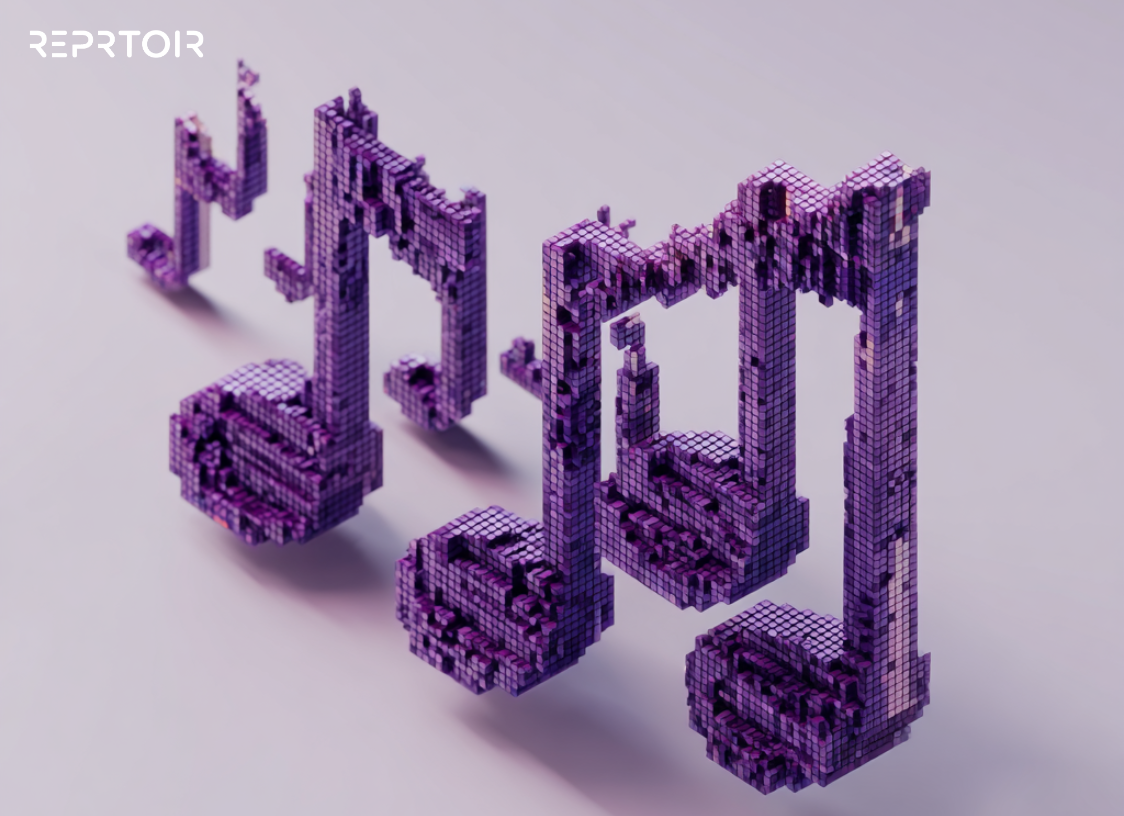We’ve had our eye on the music streaming potential slowdown this week, all while looking over the AI side, considering the impact it currently has on the markets. We’re telling you all about it now:
#1. Is music streaming really slowing down?
The music streaming industry is showing signs of a slowdown, as highlighted by recent earnings reports from major labels. UMG acknowledged a deceleration in paid streaming growth, which has raised concerns among investors. Although UMG reported modest gains in subscription streaming revenue, a decline in ad-supported revenue and slower overall growth have contributed to a more cautious outlook. Meanwhile, Sony Music and WMG have shown stronger streaming performance, with WMG particularly emphasizing "strong subscription streaming growth," despite a slight overall revenue dip.
This slowdown is seen as part of broader industry dynamics, where the era of rapid double-digit streaming growth may be tapering off. Factors such as increased competition for new subscribers, market saturation, and economic pressures are contributing to this trend. However, the industry is not in full retreat, as companies like WMG continue to gain digital ground, and new initiatives, such as premium service tiers, are being explored to sustain growth. Despite these challenges, the industry remains focused on long-term strategies to enhance revenue and artist development.
#2. Streaming remains decisive for artists
Billie Eilish is set to make history by becoming the first female artist to surpass 100 million followers on Spotify, quite a milestone for the artist. At just 22 years old, Eilish has already achieved remarkable feats, including being the youngest artist to reach 100 million monthly listeners on the platform. Her ability to compete with industry giants like Taylor Swift and The Weeknd, despite having a smaller catalog, highlights her significant impact on modern music and her growing influence in the streaming era.
Digital platforms like Spotify play a crucial role in shaping artist success. Eilish's rise, powered by strategic releases, high-profile collaborations, and a strong connection with her fanbase, demonstrates how artists can leverage streaming platforms to build and sustain global popularity. As she continues to break records and close in on the leading Spotify follower count held by The Weeknd, Eilish's career trajectory offers valuable insights into the evolving dynamics of music consumption and artist branding in the digital age.
#3. The strategy of reissuing tracks
Speaking of strategic moves, Independent labels are mastering the art of reissuing music, breathing new life into overlooked tracks and artists from decades past. This practice not only revives hidden gems but also reintroduces these works to modern audiences through remastering and redistribution, often resulting in renewed recognition and revenue for the original creators. The process, however, is complex and challenging, requiring meticulous detective work to locate rights holders and secure licensing agreements, sometimes even involving private investigators.
Reissuing isn't just about preserving music—it's about contextualizing it within its cultural origins, ensuring that the artists' legacies are honored and that their work reaches new listeners without erasing its historical significance. Despite debates over sound quality, particularly when digital tools are used in remastering, the practice has proven essential for making rare music accessible. The impact of these reissues is profound, offering a renaissance for artists who thought their work was forgotten, and highlighting the crucial role independent labels play in keeping the past alive in the present music landscape.
#4. Let’s put AI in perspective
The impact of AI on the music industry has sparked widespread concern, but some industry insiders believe the fear may be overblown. While AI presents challenges, particularly in the potential replacement of jobs and the authenticity of performances, its creative uses could be more limited than anticipated. Comparisons are drawn to the ringtone craze of the mid-2000s—once lucrative but quickly became passé. Although AI-generated music, such as voice replications of famous artists, might generate initial buzz, the novelty could wear off quickly.
Moreover, AI has already been used positively, as seen with Randy Travis, who regained his singing voice through AI after a stroke. However, the real threat lies in AI's potential to replace human jobs in the industry, from backing singers to engineers. While AI might disrupt certain aspects of the industry, the essence of human creativity and live performances still holds significant value, suggesting that AI's role might be more of a complement than a replacement in the long run. The key will be establishing strong safeguards to prevent misuse while exploring AI's potential benefits.
#5. The latest on the debate around AI and music copyright
There’s no question that generative AI is creating new compositions from vast datasets of existing music, raising complex issues around copyright and authorship. As AI blurs the lines between human and machine creativity, questions arise about who owns AI-generated music and how original creators should be compensated. Legislative efforts like the Generative AI Copyright Disclosure Act aim to increase transparency, requiring companies to disclose copyrighted materials used in AI training. Industry innovations are also emerging, such as systems that track and fairly distribute royalties based on AI’s use of original works.
Despite the potential for democratizing music creation, there are concerns that AI-generated content could oversaturate the market, making it harder for human artists to compete, and potentially leading to a homogenization of musical styles. The music industry must navigate these challenges by developing frameworks that balance technological innovation with the protection of artists' rights, ensuring that the future of music remains diverse, inspiring, and true to its human roots.










